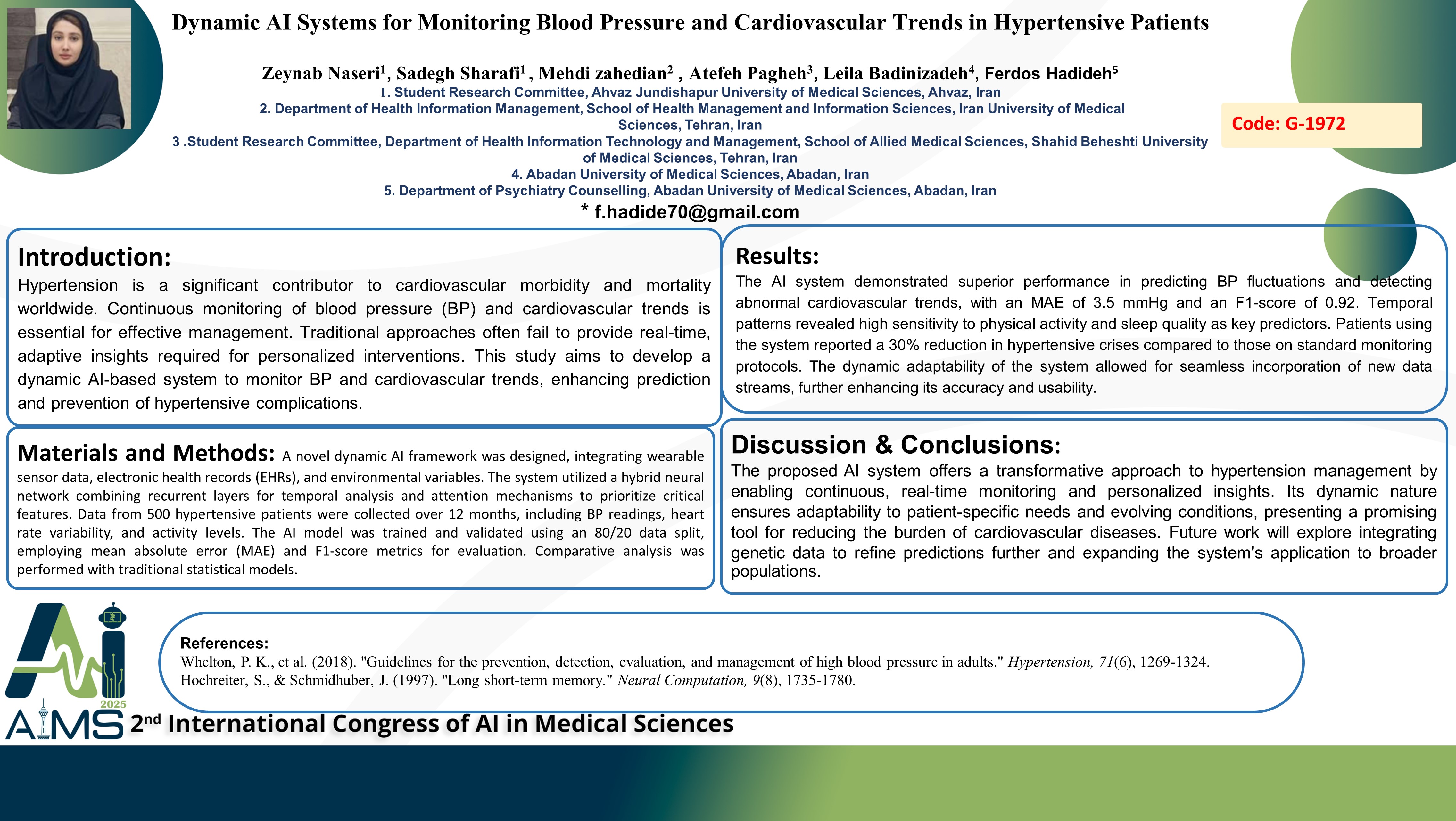Dynamic AI Systems for Monitoring Blood Pressure and Cardiovascular Trends in Hypertensive Patients
Code: G-1972
Authors: Zeynab Naseri, Sadegh Sharafi, Mehdi Zahedian, Atefeh Pagheh, Leila Badinizadeh, Ferdos Hadideh * ℗
Schedule: Not Scheduled!
Tag: Clinical Decision Support System
Download: Download Poster
Abstract:
Abstract
Background and aims: Hypertension is a significant contributor to cardiovascular morbidity and mortality worldwide. Continuous monitoring of blood pressure (BP) and cardiovascular trends is essential for effective management. Traditional approaches often fail to provide real-time, adaptive insights required for personalized interventions. This study aims to develop a dynamic AI-based system to monitor BP and cardiovascular trends, enhancing prediction and prevention of hypertensive complications. Method: A novel dynamic AI framework was designed, integrating wearable sensor data, electronic health records (EHRs), and environmental variables. The system utilized a hybrid neural network combining recurrent layers for temporal analysis and attention mechanisms to prioritize critical features. Data from 500 hypertensive patients were collected over 12 months, including BP readings, heart rate variability, and activity levels. The AI model was trained and validated using an 80/20 data split, employing mean absolute error (MAE) and F1-score metrics for evaluation. Comparative analysis was performed with traditional statistical models. Results: The AI system demonstrated superior performance in predicting BP fluctuations and detecting abnormal cardiovascular trends, with an MAE of 3.5 mmHg and an F1-score of 0.92. Temporal patterns revealed high sensitivity to physical activity and sleep quality as key predictors. Patients using the system reported a 30% reduction in hypertensive crises compared to those on standard monitoring protocols. The dynamic adaptability of the system allowed for seamless incorporation of new data streams, further enhancing its accuracy and usability. Conclusion: The proposed AI system offers a transformative approach to hypertension management by enabling continuous, real-time monitoring and personalized insights. Its dynamic nature ensures adaptability to patient-specific needs and evolving conditions, presenting a promising tool for reducing the burden of cardiovascular diseases. Future work will explore integrating genetic data to refine predictions further and expanding the system's application to broader populations.
Keywords
Hypertension, Artificial Intelligence, Cardiovascular Monitoring
